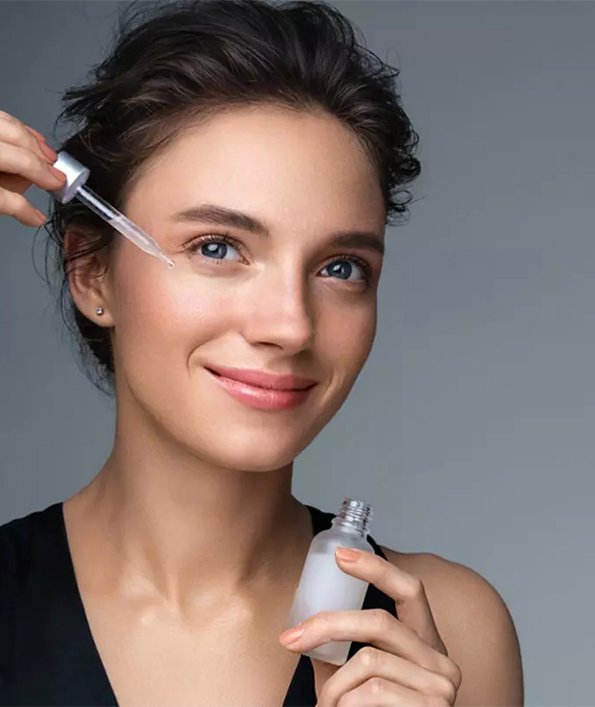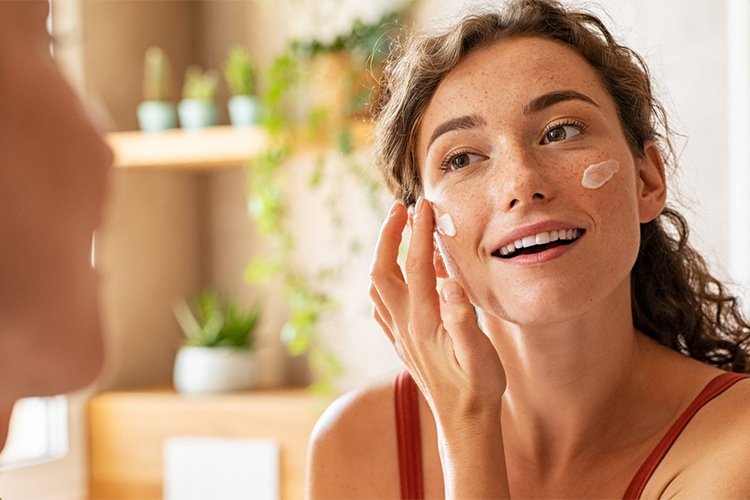
Recently, copper peptides have gained tremendous popularity due to their amazing properties in maintaining youthful and healthy skin. Moreover, it is interesting to note that copper peptides are the main ingredient in many skin care products for wound healing. Many skin care experts have praised the ability of this unique ingredient to reduce the signs of aging in all skin types. Some dermatologists even recommend using these peptides instead of fillers and Botox treatments. If you are unsure about copper peptides and their benefits for your skin, scroll down to learn more.
Copper peptides are naturally found in the human body. Copper peptides have gained recognition in the field of dermatology and cosmetics due to their potential benefits in skin rejuvenation and anti-aging effects. They are found in copper-binding tripeptides and support recovery and immunity. (A tripeptide is a signaling protein that responds to tissue injury by triggering an immune response and activating blood vessel dilation.) These tripeptides stimulate collagen and elastin, which are essential proteins that help skin maintain its shape, form and firmness. As your body ages, collagen production begins to decline, leading to visible signs of aging (1).

Lab-made peptides mimic their naturally occurring counterparts, which is why skin care companies use them in products that stimulate collagen production.
Copper peptides may also help improve the health and beauty of skin and hair because they have antioxidant properties that fight the free radicals in the body. By promoting collagen and elastin production, copper peptides may also help reduce and prevent wrinkles and sagging skin. These peptides additionally promote the production of glycosaminoglycans, including hyaluronic acid, which moisturizes the pores and skin barrier (1). In addition, they also provide wound healing. Copper tripeptide-1, a type of copper peptide, is known for its wound healing properties.
Copper peptides offer significant skincare benefits, such as improving skin tone and overall well-being. Scroll down to learn more about this skincare ingredient!
Copper peptides benefits for skin
Copper peptides tighten skin by boosting collagen production. Not only do they eliminate sagging skin, but they also reduce the appearance of wrinkles (1).
Skin elasticity refers to its ability to regain its shape after stretching. However, elastin production decreases with age and skin loses its suppleness. Copper peptides are said to stimulate elastin production, leading to improved skin elasticity (1).
Abbey Yung, a YouTuber, tested a serum containing copper peptides in one of her videos. After using it, she noticed an improvement in skin plumpness and hydration. In one of her vlogs, she notes, “My skin just has this brightness and luminosity that it didn’t have before (i).”

Hyperpigmentation refers to dark patches of skin caused by an overproduction of melanin. Skin inflammation from pimples, sun exposure, medication side effects, or general skin injury can lead to hyperpigmentation. Copper peptides promote even skin tone, help regulate pigmentation, and reduce the appearance of blemishes, acne scars, and age spots by treating inflammation
Skin has its own properties to regenerate itself and fight wrinkles, signs of aging, and skin cancer. However, over time, UV rays and free radicals present in the environment can still cause skin damage. Copper peptides regulate skin fibroblasts (cells that create connective tissue) to fight the UV rays (1).
Copper peptides may improve blood flow to the skin because they stimulate blood vessels. Improved circulation may help deliver essential nutrients and oxygen to skin cells, improving their overall health and function. This improved circulation may contribute to the skin’s natural healing processes, potentially speeding up the repair of damaged tissue and promoting the production of collagen and elastin. Additionally, improved circulation may facilitate the removal of toxins and waste products from the skin, thus contributing to a clearer complexion (1).
Copper peptides may improve skin texture by stimulating the production of collagen and elastin, leading to improved skin firmness. They may promote cell regeneration and support the skin’s natural renewal process, resulting in smoother, more even-toned skin and a youthful, revitalized appearance (2).

Although copper peptides can work effectively on your skin, they may also cause certain side effects. Learn more about them in the next section.
Although copper peptides are a low-risk ingredient for skin care products, they can cause an allergic reaction that causes itchy skin and/or redness. People with sensitive skin are more prone to such reactions.
In addition, ingredients in many skin care products can reduce the effectiveness of copper peptides on the skin. They can also cause harmful reactions when used together with copper peptides. Therefore, when using copper peptides on the skin, the use of the following ingredients must be avoided:
Retinol
Vitamin C
Alpha hydroxy acids (AHAs) such as glycolic acid. (If you are using an AHA-based chemical peel, you can use copper peptides after the treatment is over and you have fully recovered) (1).
There are a few simple ways you can incorporate products with copper peptides into your skin care routine. But first, let’s talk about a few things to consider before you decide to add it to your skincare routine:
Start adding copper peptides to your skincare routine in your late 20s to early 30s to help fight hyperpigmentation and wrinkles early. It maintains your skin’s elastin and collagen production, making it healthy and youthful from the inside out.
Always do a patch test before you start using a copper peptide-based product. Apply the product on the inside of your elbow or behind your knee. Then wait 24 hours to check if it causes irritation in that area.
Dermatologists recommend using copper peptide-based products twice a day, but in small amounts.
Use them in your morning or evening routine (or both!) depending on your skin’s needs
Only use copper peptide-based products after you’ve cleansed, toned, and moisturized your skin.
Copper peptides are solo players. Mixing it with products rich in vitamin C, retinol, or AHAs can cause skin damage and reduce or negate their effectiveness.
Now let’s look at the many ways you can incorporate this ingredient into your skincare routine.